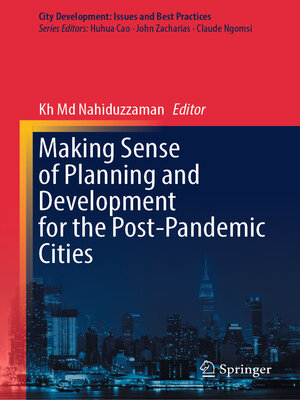Making Sense of Planning and Development for the Post-Pandemic Cities
ebook ∣ City Development: Issues and Best Practices
By Kh Md Nahiduzzaman

Sign up to save your library
With an OverDrive account, you can save your favorite libraries for at-a-glance information about availability. Find out more about OverDrive accounts.
Find this title in Libby, the library reading app by OverDrive.



Search for a digital library with this title
Title found at these libraries:
| Library Name | Distance |
|---|---|
| Loading... |
This book holds a distinguished promise of an intellectual understanding and complete account of that shifts in laying out resilient planning, development, and policy landscapes for the cities to come.
The approach offers a unique perspective on planning and development in the post-pandemic era, addressing the interconnectedness of diverse spatial, social, cultural, economic, demographic, and political aspects. It provides insights into the transformational behavior of cities and citizens, explores the influence of remote work on the real estate market, emphasizes the need for resilient infrastructure and adaptive planning, and reinforces the association between health infrastructure and planning for resilient cities.
The book provides a comprehensive account of the shifts and challenges faced in planning and development due to climate change and the COVID-19 pandemic. It explores transformational urban planning, sociocultural, and economic landscapes and addresses topics, including land use changes, transformational real estate market, urban recreational space, adaptive infrastructure, and the need for resilient planning. It offers valuable insights for urban designers, architects, geographers, city planners, policymakers, and pubic officials seeking to enhance city resilience in the post-pandemic era.
The intended readership of the book includes urban designers, architects, city planners, geographers, policy makers, and public officials. It caters to individuals interested in gaining a critical understanding of the interconnectedness between various spatial, social, cultural, economic, demographic, and political aspects. The content level is academic, offering scholarly insights and a unique post-pandemic perspective on enhancing city resilience.







